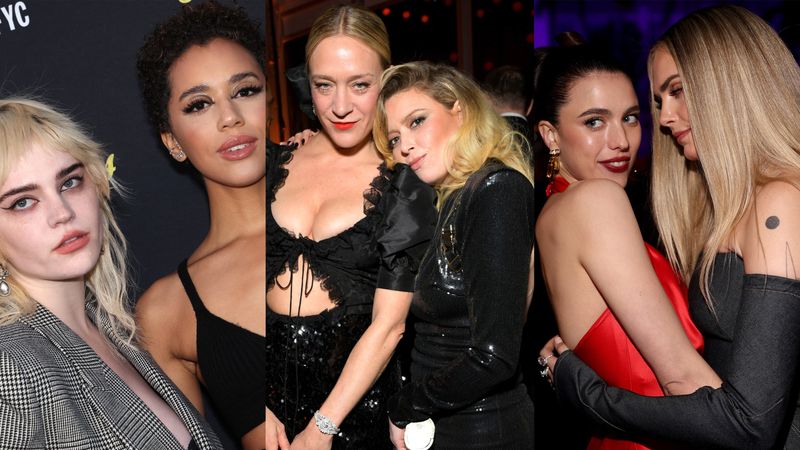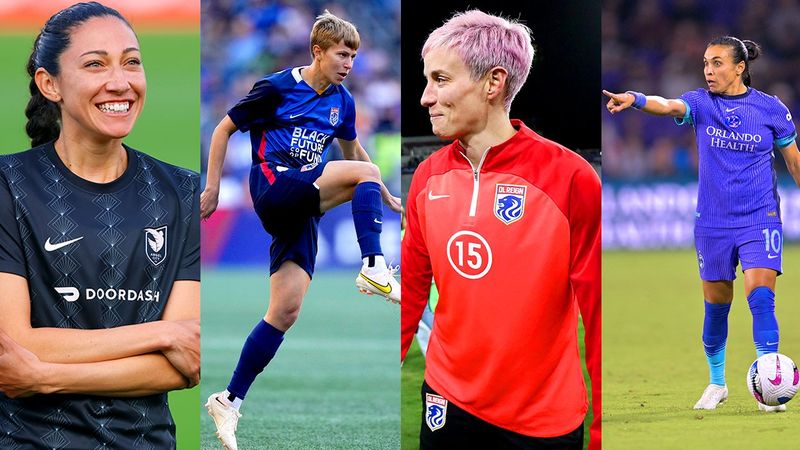Every day seems to bring another legal assault on abortion rights: banning funding of Planned Parenthood, requiring a sonogram, mandating a physician certify that a woman has not chosen an abortion because of the race or sex of the fetus. These newest developments are on top of already established legal limitations, such as prohibitions against later-term abortions (often misnamed partial birth abortions) and requirements that women under 18 obtain parental or judicial permission.
For many lesbians, the attacks on abortion availability can be background noise. We focus on problems that seem to affect lesbians more directly, such as same-sex marriage, the military’s dismantling of the “don’t ask, don’t tell” policy, or even the newest lesbian celebrity gossip. When we think about our own reproductive rights, it is more often about becoming pregnant and raising our children. To the extent we consider abortion, it may seem an issue exclusively for our heterosexual sisters.
We may agree with the feminist insight that laws restricting women’s reproductive and sexual choices spring from a common patriarchal source. We may know that the legal arguments against reproductive and sexual restrictions are grounded in the same constitutional rights. And, depending upon how much recent history we know, we may wonder how it seems that abortion rights and lesbian rights have swapped places: If abortion was once more acceptable than lesbianism, now it seems more acceptable to be “out” as a lesbian, than to admit to having an abortion.
But access to abortion is essential to lesbians. It is not merely about ideas or legal theories, as important as those are, but about our ordinary lives.
First of all, there is rape. To be a lesbian does not mean that one is immune from being raped, and in fact it may make one more susceptible to it. According to the US Department of Justice, approximately 18% of women are raped sometime during their lives; a National Lesbian Health Care Survey revealed that 32% percent of lesbians polled had been raped or sexually assaulted. There has been much attention to the so-called “corrective rapes” of lesbians in South Africa, in which lesbians are specifically targeted for sexual assault with the supposed purpose of instilling heterosexuality in them. In the United States, the term “corrective rape” is not used, but there are certainly cases in which a victim’s lesbianism - - - or perceived lesbianism - - - has spurred the sexual assault or increased its violence.
No matter the motivation behind them, rapes raise the possibility of an unplanned pregnancy. One important variable predicting pregnancy is whether or not the victim was using some sort of contraception. Lesbians, unlike their heterosexually active counterparts, would presumably be more likely to become pregnant.
There are a few “rape exceptions” to restrictions on abortion, but fewer than one might think. The mandated ultrasound image with simultaneous explanation and display of the image? The mandatory waiting period? The mandated lecture on the “father’s responsibility for child-support”? None of these restrictions usually have an exception for rape. And abortion service providers do not become more plentiful or more geographically widespread because the pregnancy was a product of sexual violence.
Additionally, whether or not the sex was consensual, lesbians face particular obstacles because we may be “reproductive amateurs.” For example, it might take us longer to recognize we are pregnant. Maybe our formal sex education was so hostile to homosexuality that we didn’t pay attention to any of it. Maybe our informal sex education was not focused on contraception and pregnancy. We may not have the support networks that heterosexual women have, or we may be too embarrassed to ask for help, or we may be in denial about the possibility of pregnancy. For such lesbians, access to later term abortions is absolutely crucial.
More on next page...
\\\
(continued)
While mature lesbians may certainly fall into this category of “reproductive amateurs,” queer youth are especially vulnerable. They may have engaged in heterosexual sex for a variety of reasons, including coercion, intimidation, camouflage, sexual abuse, or survival/commercial sex. They may also be less likely to use birth control and several studies have documented that lesbian youth are two to ten times more likely to become pregnant than their heterosexual counterparts. These young lesbians may also be less likely to recognize and accept their pregnancies than their heterosexual peers. In addition to facing the obstacles placed on accessing abortion for later term pregnancies, young lesbians confront laws in almost every state that require minors to obtain parental consent or judicial approval for any abortion. Young lesbians may be more likely to be estranged from their parents than their heterosexual peers and may have additional reasons not to want to seek parental permission. Young lesbians may also be deemed less worthy of an abortion by judges who make decisions about young women’s “best interests” or “maturity” based upon heterosexist factors such as a “supportive boyfriend” or the desire to become a mother “someday.”
Finally, lesbians may be suspect as independent women or as hostile to men. The law is full of platitudes about women’s “natural” roles as wives and mothers. In 1872, a United States Supreme Court Justice could wax eloquently that the “paramount destiny and mission of woman are to fulfill the noble and benign offices of wife and mother.” But surely things have changed? However, in 2007, another United States Supreme Court Justice waxed somewhat less eloquently that because respect for “human life finds an ultimate expression in the bond of love the mother has for her child,” it “seems unexceptionable to conclude some women come to regret their choice to abort the infant life they once created and sustained.” In both cases, the Justice felt confident that he knew what was best for a woman. In the first case, it was that she should not be a lawyer. In the latter case, it was that she should not be able to have an abortion.
A few new state laws “know best” that a woman should not be influenced by the sex of her fetus when making the abortion decision. Criminalizing sex-selective abortions may seem to privilege females over males given the perceived preference for boy children over girl children. However, interrogating a woman’s reasons for her desire to have an abortion is a hazard for all women. For lesbians, the dangers are refracted through stereotypes of lesbians as man-haters. Imagine a lesbian who makes a comment on the apparent male sex of the fetus after being forced to view the mandatory sonogram. Will that comment be sufficient to bar her ability to have an abortion? Even if it was a nervous joke?
It might be that no lesbian would ever make such a joke. Or that no young lesbian would be afraid to ask her parent’s permission to terminate a pregnancy. Or that no lesbian, perhaps young or perhaps not, would not realize she was pregnant at the earliest possible time. Or that no lesbian would become pregnant as a consequence of rape.
It might be that no lesbian will ever want an abortion.
But it might be that she will. And that abortion will no longer be legal.
Ruthann Robson is the author of Lesbian (Out)Law and Sappho Goes to Law School. She’s a Professor of Law & University Distinguished Professor at City University of New York School of Law.












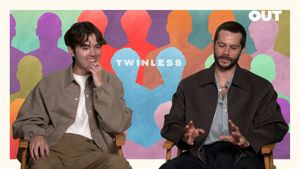






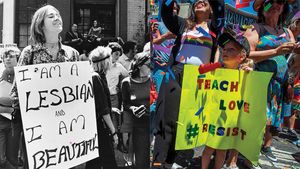













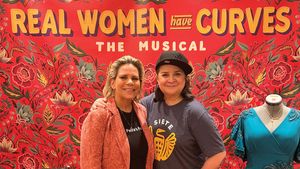
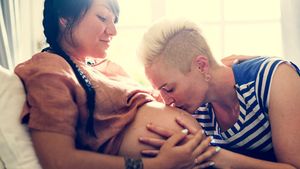













































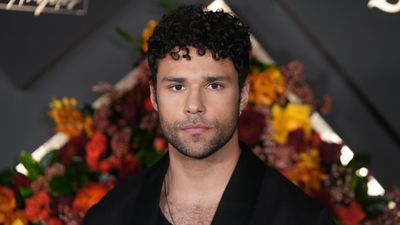





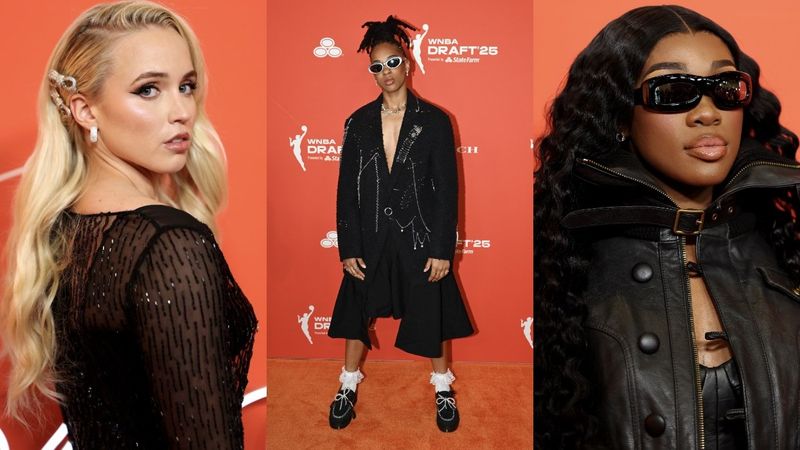
 Cindy Ord/Getty Images
Cindy Ord/Getty Images










